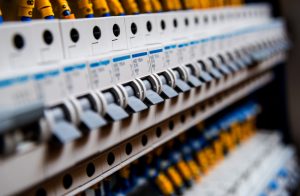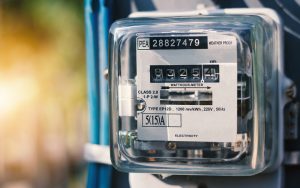A Guide to EICRs
As a landlord letting out your property, there are a number of rules that you must follow, which includes all kinds of checks and maintenance related to the electrical safety of the home you are renting out.
Home Emergency Insurance for £130
- ✓ Covered up to £1,000 per emergency
- ✓ £250 for overnight accomodation
- ✓ Call out, labour & parts included
England has its fair share of incidents related to electrical installations, which in 2017 accounted for over 3500 A&E admissions as well as 13% of domestic fires.
These will most likely have been caused by poorly maintained or not fit for purpose electrical installations, which has come to cause serious damage both to property, but also injury to people and in some cases fatalities.
What is an EICR?
It is not uncommon for electrical installations to wear off over time and they can be damaged through alterations to the property or the electrical system. It is of great importance to be able to check the condition of the electrical installation of the property that you let out.
Earlier this year the government introduced a mandatory electrical safety inspection for private landlords which takes place in the form of an electrical installation condition report (EICR). The new rules were brought in on the 1st of April 2020 and in force as of the 1st of July 2020, titled the Electrical Safety Standards in the Private Rented Sector Regulations 2020.
The aim of these new regulations is to protect the property as well as ensure the tenant’s safety. An EICR must be carried out by 1st of April 2021.

As a landlord you are required to understand your legal duties in relation to electrical safety at your property, and subsequently carry out the required checks and tests to be in line with the government regulations.
Who can carry out an EICR?
Essentially the regulations sanction and enforce regular checks on the electrical installations of your property by a qualified and registered electrical engineer who will carry out an EICR, providing the landlord with a report summarising the findings and assessment of the electrical system as well as any improvements, if those are at all needed to begin with.
The test looks to find any potential fire hazards or electric shock risks, identify defective electrical work, detect lack of bonding or earthing as well as spot any overloading of electrical installations or equipment.
How long does an EICR last?
It is amongst the landlord’s duties to ensure that the electrical safety standards are met during a period when the home is occupied by the tenant, on top of ensuring that the test and report itself is carried out at the required interval. Currently, EICR has to be carried out every 5 years.
Further to this the landlord will be responsible to obtain the report from the qualified person carrying out the inspection, which will include the results of the test as well as specify the date when the next test is due.

Do I need to show my tenants that the property has an EICR?
As the landlord you will have to provide a copy of the report to each tenant (if for instance you are a landlord of a house in multiple occupation – HMO) within a month of the inspection or before the tenant moves into the property if the inspection has already been carried out. It is important that you remember to keep a copy of a report to provide to the engineer that will be carrying out the next inspection.
There are as can be seen strict rules that landlords must abide by, and in the case that an individual fails to carry out the appropriate tests and reports on a property, they could be subject to a fine of up to £30,000.
The introduction of the EICR test is ultimately a preventative measure, as the vast majority of landlords already followed a similar protocol to the one introduced to safeguard their property and its tenants.